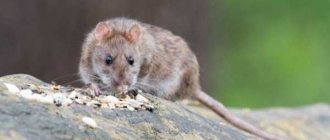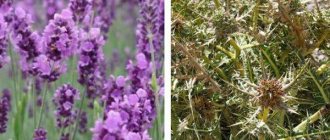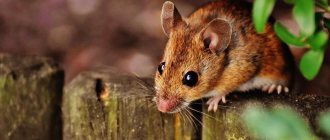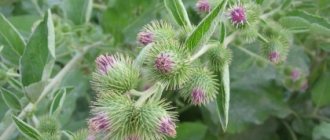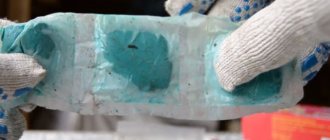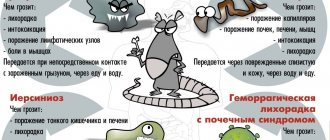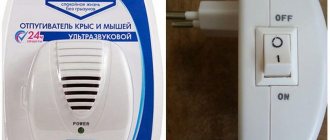Pests such as mice are unwelcome neighbors in any room. They spoil food, clothes and furniture, and also leave behind an unpleasant odor. In this article you will learn how to use vinegar against mice in the house, and also get acquainted with other tricks and nuances of treating premises from rodents.
Mice can even make holes in the walls of a house.
What harm do mice do at home?
The presence of mice brings with it the following negative aspects:
- An unpleasant odor that is quite difficult to get rid of using simple methods. For example, ventilation. More careful processing will be needed.
- Rodents spoil food. At the same time, they do not disdain anything: they use cereals, pasta, cheeses, sausages and more.
- Pests' teeth grow quickly, so they need to be constantly sharpened. So mice chew on wooden, plastic surfaces, and various building materials.
- They damage electrical wiring, telephone cables, and water pipes.
- They are carriers of various infections and diseases that are dangerous to human life. Among them are plague, salmonellosis, typhus and more. And allergens are transmitted with particles from skin and fur.
- Can infect domestic animals.
- If a rodent's life is in danger, it can be very aggressive and attack first. Mice can jump up to 1.5 meters in height.
To learn how to protect your home from mice, watch the following video below:
Are mice afraid of the smell of vinegar?
The smell of vinegar disgusts mice. They try to avoid him. Therefore, acid is considered effective in pest control. Moreover, rodents have very good memory. Having once realized that the place is not suitable for their habitat, they will not return there again until a new generation appears.
Acid is undeniably effective in pest control. Find out also how vinegar helps against fleas in an apartment. These recommendations will allow you to make the desired concentration of the solution against insects.
Smells that repel mice and rats
| Name | Does it scare you away or not? |
| Mint | Yes |
| Lavrushka aroma | Yes |
| Sage | No |
| Vinegar of different acid percentages | Yes |
| Alcohol | Yes |
Fighting mice at home with vinegar
There are two methods you can use to control rodents: baiting and repelling. Both of them have their strengths and weaknesses.
Bait
The essence of the bait is that a poison dangerous to the animal is mixed with food for rodents. As a result of eating such a “snack,” the animals die. In this matter, grain plants and vinegar can be perfectly combined. The first component will attract mice, and the second will kill them after they eat it.
Author's note
Kirilova Olga
Be careful not to allow pets or small children to swallow the bait.
Repeller
Another effective method is scaring. Its essence is to create a negative impression among pests about their habitat and force them to leave. Most often, odors that are unpleasant to rodents are used for these purposes. One of them is the strong aroma of acetic acid.
Using the contents of the kitchen cabinet
Even in the kitchen cabinet you can find simple means for removing rodents. The most common varieties used in cooking are presented and described here. They are found in almost every kitchen.
Carnation
Cloves are the dried flower buds of evergreen plants with red and white flowers. The buds must be harvested at the right time, and it takes between 4,000 and 7,000 buds to produce one pound of cloves. The aroma of this plant is comparable to tobacco, as it has a bright, interesting smell. If you set fire to a dry clove, the smoke from it will scare away harmful rodents, insects, and blood-sucking parasites.
Coriander or cilantro
The term "coriander" is often used to refer to a spice made from the dried fruit of the Coriandrum sativum plant. This herb is also called cilantro or Chinese parsley. The fruits, or seeds, are small and round, brown or tan in color. They are sometimes called coriander or coriander seeds. Cilantro leaves have a spicy taste and aroma that often causes extreme reactions. People either love him or hate him. Small animals react very negatively to coriander.
Chilli
Chili peppers are in the line of vegetables with garlic, onions, and peppers. Among them, it is the most caustic, pungent, and bright in both taste and aroma. Its strength and hardness are not inferior to vinegar or ammonia. Small and large animals, rodents, insects, and even people cannot stand such a specific smell. It can be used in any form - fresh, dried.
Sage
Sage is an herb with oblong gray-green leaves that are used in cooking and herbal medicine. The herb emits a pungent, slightly astringent odor. Fresh leaves are usually used, although it is one of the few herbs that actually has a more intense and concentrated flavor when dried. If you buy dried sage, you should store it in a cool, dark place in an airtight container to preserve its specific properties. Growing sage is relatively easy. It will thrive in most environments as long as it is in sunny, well-drained soil. Small animals do not like its aroma.
Vinegar-based rodent control products
To treat the room against rodents in the autumn, you can place saucers with vinegar essence. During this period of time, pests are actively looking for a warm place to winter. The pungent smell of acid will repel them and prevent them from establishing themselves in your home.
Not only home premises are treated with acid. See how to treat a greenhouse with vinegar and hydrogen peroxide. And find out in what cases it is effective.
Another product can be made using flour and vinegar. A regular dining room will do.
Preparation: Add vinegar to the flour little by little until you get a mass of thick consistency from which you can form balls.
Usage: Make several circles from the resulting mixture. Distribute them throughout the room, paying special attention to those places where rodents are most found. Carry out all procedures with gloves. Otherwise, the human smell will deter rodents from the bait.
Result: Pests will disappear in 3-7 days. It is best to repeat the procedure, replacing the balls with fresh ones. In this case, the result will be permanent and the rodents will no longer return.
Vinegar balls are placed in a pre-prepared trap
How vinegar will help get rid of mice in the country
It is quite difficult to get rid of mice in a summer cottage, since their distribution area is wider. In this case, you will have to use 70% vinegar for better effect.
Author's note
Kirilova Olga
When processing, wear a mask to prevent the smell of acid from burning your respiratory tract and causing headaches.
Processing process:
- Purchase 5-6 bottles of acetic acid 70% at once. It must be chemical and unsuitable for food.
- Pour the liquid in large quantities into several enamel containers.
- Place them around your dacha area. Pay special attention to the premises. Even those of them that are in desolation.
The smell will scare away the mice and they will run away. This method is suitable for processing only if you do not plan to spend the winter at the dacha. Otherwise, the strong aroma of acid will harm your own health. Processing is carried out in the autumn. In spring, you should remove all containers and ventilate the room.
There is an old kettle left at the dacha, don’t rush to throw it away. Find out how to properly descale a kettle with citric acid and it will still serve you well.
Let's dispel the myths
Are folk remedies for mice effective? Home remedies, in fact, do not work at all. You will probably notice a temporary effect and perhaps a decrease in the number of pests, but these methods will not permanently get rid of mice.
Rats and mice are quite smart creatures. They know they live in a dangerous world as soon as they find a place where they can live safely from predators, have access to water and food, and would rather put up with ultrasonic waves and mint than risk leaving their new home.
Naphthalene.
It is a strong-smelling white solid. When inhaled or swallowed, blood cells lose their ability to carry oxygen. It was believed that placing mothballs near mouse nests would get rid of the rodent problem. However, it is not. The amount contained in tablets sold in stores is sufficient to kill moths and other insects, but not mice. The level of substance required for rodents should be the same as for humans. The mice won't pay any attention to it.
Even if rodents are bothered by this smell near their entrance, they will soon find or gnaw another one, a hole the size of a coin is enough for them.
And will you be happy if all your things smell of a specific aroma?
Mint.
The rooms are filled with a pleasant aroma that gets rid of mice, making it an ideal repellent? WRONG!
As in the first case, this is only possible if there is a high concentration, because mice have a sensitive sense of smell. Logically, mice live in all areas, including sewers. If they can put up with the smell coming from the smelly sewer system, then peppermint won't give them any problems.
Other folk remedies for mice are just as unreliable; let’s add hunting cats to the exception.
How to keep mice away from your apartment using vinegar
For the product you will need:
- vinegar essence;
- cotton balls.
Method of preparation: Moisten the balls generously with acetic acid. Squeeze a little so that liquid does not flow from them.
Application: Place cotton pads in mouse habitats. Change the balls for fresh ones every 3-4 days. Also coat door jambs, baseboards and other surfaces accessible to pests with vinegar.
Result: As soon as the mice smell an unpleasant odor, they will begin to run away en masse. Within a few days there will be no more individuals left. This method of control is also suitable for preventing the appearance of rodents.
Mice are attracted primarily by the smell of food; find out how to clean the microwave from grease inside with vinegar so that the rodents have no clue.
Have you ever fought rodents?
Not really
Salt and vinegar against voles in non-residential premises
Voles are quite annoying animals that have a tendency to return even to those places that are imprinted in their memory in a negative light. This is especially true for premises in which people do not live.
In order to protect such a building, you can use vinegar and salt together. Salt causes dementia in rodents and disrupts the hematopoietic process. And vinegar speeds up the process.
In order for the method to produce the desired result, there should be no food or other food sources suitable for mice in the room. Open the packs of salt and place them in the suspected habitat of rodents. Place containers with vinegar essence in approximately the same range. The first ingredient will destroy rodents during the entire absence of humans. The second is 3-6 months until the acid evaporates.
You can get acquainted with other interesting pest control options that will get rid of the problem forever using the following video:
Removing uninvited guests from your home
Herbs are not only safe, but also poisonous. If there are children or animals in the house, then it is better not to use toxic products or place them in hard-to-reach places.
Dried herbs are collected in bunches and placed in the corners of the room where pests most often live. The herbal scent has a beneficial effect on the human body, calming the nervous system and eliminating headaches. You should consider which herbs can be used in houses and apartments:
Ratrunner or blackroot. The name speaks for itself: its smell repels rats and also saves from mice. For control, dried root powder, juice and decoction of rhizomes are used. You can simply dry the grass and spread it indoors. Before laying it out, the ratcatcher is scalded with boiling water so that the smell is strong. People won't feel it. It must be remembered that this plant is very poisonous.
When working with it, be careful and use gloves
If rodents are not constantly in the house, but appear periodically, then you can plant the desired plant in a flower pot. This way there will be no need to collect and prepare herbs. Chamomile and mint take root well at home. Moreover, they have a beneficial effect on the human body and will not cause harm if they grow in the house.
Having chosen plants for pest control, you need to determine where to place them. Poisonous herbs are placed only in places where rodents frequent or near their burrows. Safe plants are placed throughout the house. Renew the herbs placed around the house once a week.
Safety precautions when poisoning mice and rats with vinegar
Vinegar against rats in an apartment is a truly effective remedy. However, when processing, you need to take safety precautions so as not to harm yourself or others. These include the following:
- When working with acetic acid, wear gloves, a mask, and safety glasses to prevent the product from getting on your skin and mucous membranes. Otherwise, burns or irritation may occur.
- It is better to prepare solutions in the fresh air or in a well-ventilated room so that vinegar vapors in smaller dosages enter the body.
- Place the bait in places that are inaccessible to pets or small children.
- If you find a dead member of a species, remove it immediately. But only wear gloves so that infections transmitted through mice do not get to you. Disinfect the place itself.
- Do not place repellent vinegar lotions near food. Otherwise, they may absorb the aroma and taste of acid, which will negatively affect not only the taste of the product, but also your health.
By following safety measures, you will get rid of the problem without harming your own body and others.
In the household, acid finds its use in everything. Find out what fruit acids are used for, and also read how to give apple cider vinegar to chickens if you are breeding birds.
Wear gloves even when working with 9% vinegar
Causes of rats
Free access to products is a sure way to attract pests.
The appearance of rats in an apartment or private house can be due to the following reasons:
- Excess of individuals at the previous place of residence: the more rats live in one territory, the more food they consume. If there is no longer enough food, some of the animals go in search of it.
- Accessible food and water: If you leave leftover food on the table, don't pick up trash, and don't wipe up crumbs, rats will quickly realize that there is money to be made here.
- Rodents are poisoned in their previous place, for example, in the basement: this forces them to urgently run and look for a suitable place.
- Ability to enter the house: If there are cracks in the corners and walls, it will be easier for rats to get inside.
Important! Most often, rats come from neighbors or from the street - when one batch is destroyed, another may come in its place from the same place
FAQ
When it comes to how to get rid of mice using vinegar, some people have a number of questions that need answers. To avoid them taking you by surprise, get to know the most frequently asked questions in advance.
Is it safe or not for people to use vinegar for mice?
The use of vinegar in the fight against rodents will be safe for humans if all precautions are followed during processing.
How quickly will rats and mice disappear after vinegar?
Pests begin to leave the premises after 2-3 days. They are completely eliminated at the end of the week.
Are the methods proposed in the article effective?
Not really
;
How often should you repeat the vinegar treatment to get rid of mice forever?
To forget about the problem forever, the treatment procedure should be repeated once a month at first. Then reduce this number to once every six months, and then to one treatment per year.
What repels rats from chemical poisons
Chemical poisons are easy to use and effective
Depending on the main active poison, chemical poisons can act on different organs and systems of the rat: nerves, lungs, digestion, circulatory system. Most poisons act within 2-3 days: during this time, the poisoned rodent manages to lead other rats to a new feeder.
To die, a rat needs to eat a certain amount of poison in a short period of time. If she eats less than necessary, there is a high probability that the body will adapt, and in the future the poison will no longer act.
The most effective means of removing pests include the following:
- “Rat Death No. 1”: comes in the form of a soft mass in individual briquettes, which is capable of destroying almost any rodent. It begins to act after 2-3 days: the rat develops internal bleeding and suffocation, and it dies after 7-10 days. The mixture is completely ready, has a pleasant, attractive aroma: you need to transfer the bag into a bowl and leave it near the entrance to the hole. You cannot touch the poison with your bare hands. The average cost is 50-60 rubles.
- Ratpon: a more expensive imported product, available in granules, packaged in 40 gram bags. The active substance has a painless effect on the body, prevents blood from clotting, which causes internal bleeding. Thanks to edible additives, the rat actively absorbs the granules. Death occurs within 4 days. The average cost is 220-230 rubles.
The only downside of Ratpon is the price
- Help: produced in the form of edible granules, which just need to be scattered in the right place. The product consists of poison, which has a cumulative effect, and food additives that cause appetite - the more the rat eats, the more it wants, and the faster the poison accumulates in the liver, poisoning the entire body. The average price is 30 rubles.
- “Krysin”: available in the form of briquettes (ready to use) and gel (must be mixed with edible bait, for example, oil). This is an extremely toxic product that is highly effective: most of the colony dies within the first 3-4 days. When using “Rat”, you need to remove water from the treated area: if the rodent drinks soon after eating the poison, its effect will decrease. The average cost is 50-60 rubles.
- "Tricotta": can be used in places with high humidity. Available in the form of briquettes - 16 pieces of 10 grams. After entering the body, 3-6 days later the rat feels suffocated, runs out of the hole and dies on the street. This allows you to not be afraid that the body will not be found and it will begin to decompose. The average price is 80 rubles.
On a note
- Mice are repelled by the smell of humans. Therefore, the bait should not come into contact with the skin of your hands even at the time of preparation.
- Infections from mice are not only transmitted through saliva, bites or fleas. Some of them can be acquired through tactile contact with a rodent.
- After treatment, check the health of your pets: they could easily catch the infection from rodents.
- In order to get rid of pests as quickly as possible, use 2-3 control methods together at once.
- To prevent rodents from appearing again, carry out regular treatment for preventive purposes.
Ratcatcher
Rathorn (black root) is one of the most famous plants, the smell of which is not tolerated by mice and rats. Black root against rats and mice is used both fresh and dry. Powdered dry roots, a strong decoction of them, and plant juice are used as a poisonous component for preparing food baits.
Rodents will also not appear in a room where fresh or dry rat grass is laid out. However, due to the large number of dangerous alkaloids, the plant is not recommended for use in apartments or residential buildings. Therefore, when working with it, it is necessary to use a respirator and rubber gloves.
It's not just the smell of rat exterminator that scares away animals. What mice and rats fear most is the seed of the plant, which clings firmly to their fur. You can protect animals’ access to the area by planting several blackroot seedlings near the house and outbuildings.
